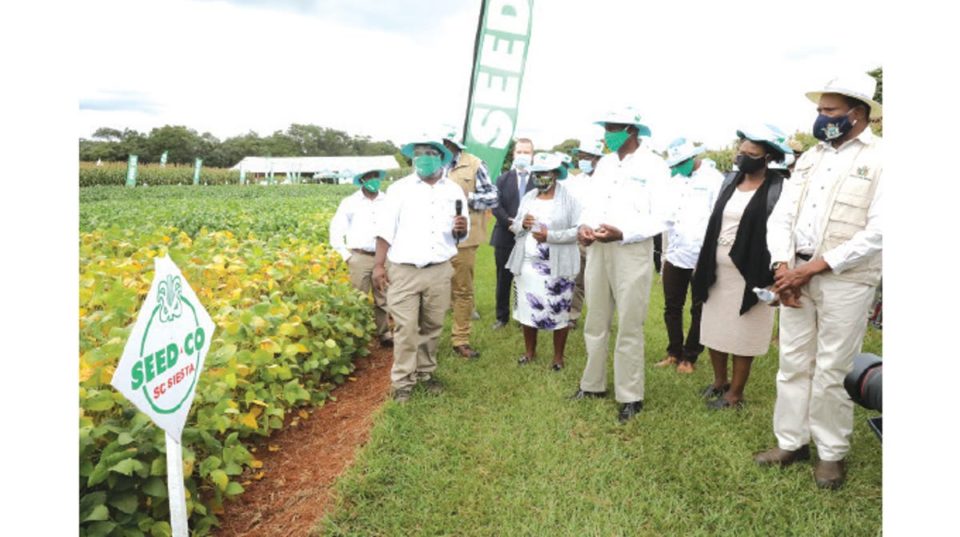Zimbabwe and Malawi have started sharing critical information of transformative agriculture to ensure national food self-sufficiency.
Both countries are transforming agriculture with Zimbabwe having come up with the Agriculture and Food Systems Transformation Strategy that seeks to achieve a US$8,2 billion agriculture economy by 2025.
The strategy is a composite plan of action drawn from the Agriculture Recovery and Livestock Growth Plans.
Malawi is also transforming its agriculture and targeting to boost land under irrigation to 400 000 hectares.
This came out yesterday when Malawian Agriculture Minister, Lobin Clarke Lowe, toured the Seed Co Rattray Arnold Research Station in Goromonzi.
Minister Lowe was accompanied by Lands, Agriculture, Fisheries, Water and Rural Resettlement Minister Anxious Masuka, Minister of State for Provincial Affairs and Devolution in charge of Mashonaland East Aplonia Munzverengwi, Malawian Ambassador to Zimbabwe Ms Annie Yauka Kumwenda and Seed Co managing director Dr Edworks Mhandu, senior Government officials and agriculture scientists.
The team toured several demonstration plots of crop varieties being bred by the seed house that include rice, soya beans, sugar beans, sorghum, onions and cabbages, among other hybrid crop varieties.
Minister Lowe, who is visiting Zimbabwe for the first time, said he was impressed by the humble and warm people of Zimbabwe.
“After going through the research station, we appreciate and have learnt a lot. Soon we will send a delegation to visit the Ministry of Agriculture and Seed Co. There is a lot to learn from transformative agriculture in Zimbabwe.
“My Government is going towards transformative agriculture and we need to be oriented and Zimbabwe is the best country to get that orientation. I wish we had stakeholders or partners like Seed Co. If we have similar investment in research it would help the country and the region. I like the way you collaborate with your Government,” he said.
Minister Lowe said Malawi was once food insecure and the Government introduced affordable inputs and seed availability was a challenge.
“Seed Co came to our relief. We have since increased use of hybrid seed from 30 percent to 68 percent. We have 1,1 million tonnes of maize ready for export because we managed to produce certified seed.
“Zimbabwe has so many Presidential initiatives such as the irrigation programme and horticulture schemes. I commend Government for all those initiatives.
“My government is focusing towards irrigation. All along we were relying on rain-fed agriculture and we target 400 000 hectares to be irrigated in Malawi.
“We have only achieved 10 percent of that,” said Minister Lowe.
Minister Masuka expressed concern over low yields at the farms and said there was need to transform agricultural colleges and universities’ curriculum so they do not produce extensionists, but entrepreneurs.
“Those already in Agritex should transform their minds to become business advisers.
“We have motorised them and given them gadgets. They should be prepared for paradigm shifts so they can help households to transform from farming for subsistence to business.
“There is close collaboration between the private sector and Government especially now because want the private sector not to be a spectator but to be an active participant and partner for development. The seed houses are critical as they provide the elite genetic material that enables this transformation.
“At planning level that is when we include them. This participatory approach has enabled us as Government to be more realistic in our expectations,” he said.
Minister Munzverengwi said her province was strategic for food production.
“We urge Seed Co and other seed houses to introduce more model plots for their crop varieties so that farmers can learn and improve their knowledge and boost production,” she said.
Dr Mhandu said Seed Co was answering the clarion call by the Government to boost agriculture production and ensure national food security.


